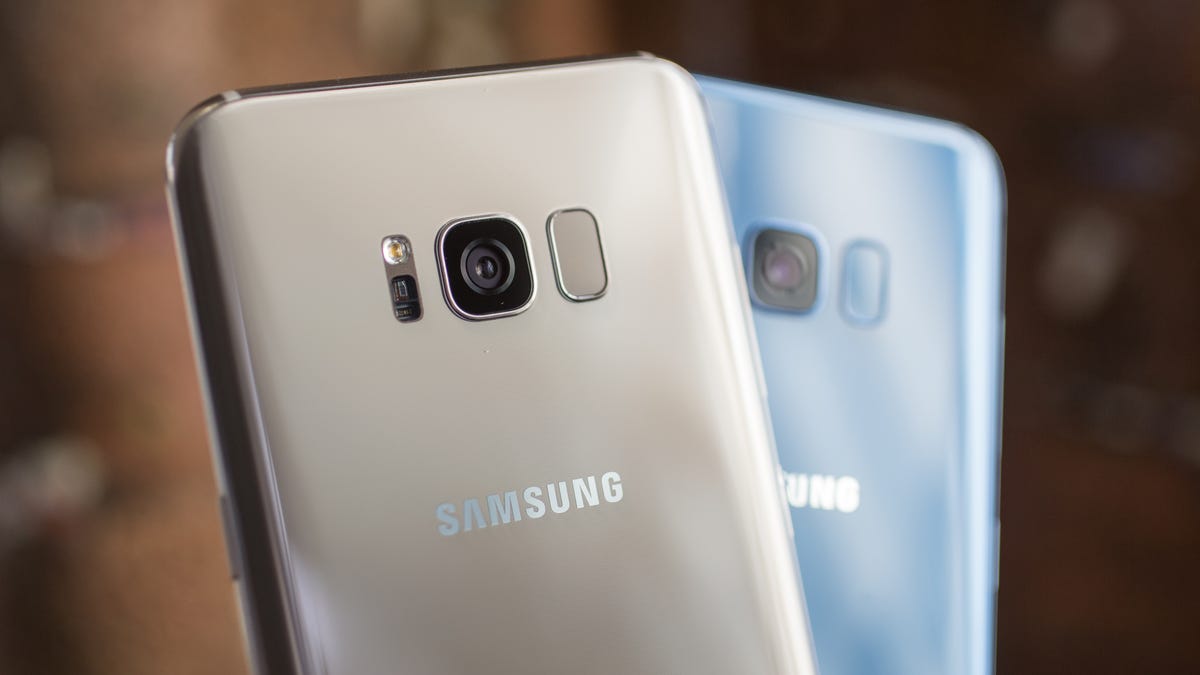With Bixby, Samsung tries to talk its way into contention
The tech titan has big hopes for its new digital helper. Will it get shouted down by Google, Apple and Amazon?

OK Google, meet Bixby. Alexa, meet Bixby. Hey Siri -- never mind, you all get the point.
There's another voice assistant on the block, this time from Samsung and coming exclusively to its new Galaxy S8 phone later this month. It does a lot of the same stuff those other digital helpers already do, only it does them worse while it shakes off its newborn glitches.
So if Samsung's Bixby is kind of the same but not as comprehensive or bug-free as Google Assistant or Amazon's Alexa, why is Samsung even bothering with a me-too voice butler?
I posed this question to three industry experts who all gave the same answer: differentiation. Living in the competitive world of Android devices, Samsung needs to find more ways to maintain customer loyalty. Bixby is clearly a basic product for now; Samsung didn't even let Bixby talk onstage during its S8 launch presentation Wednesday in Manhattan. Still, the experts said, the assistant could mature into an important part of Samsung's competitive edge.
Bixby also gives Samsung one of its best chances at grabbing a huge chunk of the smart-home market. The tech conglomerate is talking up the idea of adding its homegrown assistant and connecting software into more of its products, such as TVs, washing machines and refrigerators.
"Bixby is a vision, a promise for the future, but a promise for which Samsung has yet to deliver," said Gartner analyst Werner Goertz.
That Samsung felt it needed to introduce a new voice assistant, following the launch of its unpopular S Voice software in 2012, shows how hypercompetitive the voice market has become. Since Apple introduced Siri to the world five years ago, there are now four leading consumer voice helpers: Siri, Alexa, Google Assistant and Microsoft's Cortana. All are vying to become the new operating systems for smart homes, voice shopping or connected cars.
Samsung has to stick with the voice game -- despite being late to the party with Bixby -- because voice is becoming a key way we interact with all of our devices.
"They are late, but it's still early in the voice-assistant marketplace," said Tim Bajarin, president of tech consulting firm Creative Strategies.
For its part, Samsung says it isn't offering Bixby as another all-seeing, all-knowing voice assistant that can answer any question you can think to ask. Instead, it's a way for us to control its Galaxy S8. But even by those standards, Bixby doesn't appear to do much yet.
Which Bixby, and when?
Samsung faces obvious challenges.
For starters, Bixby has to share the phone's real estate with Android's standard voice helper, Google Assistant. There's a real risk Samsung will just end up confusing customers by providing two built-in voice butlers. ("Sooo, when do I use Bixby and when should I wake up Google Assistant?") And if Bixby starts off buggy, there's a good chance people will just stop using it. So much for the great new way to control our devices.
Confusion is especially likely if folks don't understand Bixby's three separate skill sets and what they're used for: Bixby Voice (a personal assistant to operate the phone), Bixby Home (informative flashcards) and Bixby Vision (a layer of image recognition added to the camera).
Samsung Galaxy S8 launch
"In the end, they'll naturally gravitate to what's working best and the other thing gets forgotten," IBB Consulting senior partner Jefferson Wang said of S8 users.
Also, the voice market has matured a lot in just the past two years since Alexa came out. Consumers already expect plenty from these digital assistants, so Bixby will have to deliver, or become a really fast learner. Granted, Alexa still struggles to understand users at time, and Siri often produces the wrong responses.
But Bixby could help Samsung create a more tightly knit ecosystem, allowing the company to better compete against its main rival, Apple, which prides itself on making devices that all work well together.
Beyond that, Goertz suggested that platforms like Bixby, artificial intelligence and connected devices could enable Samsung to get its disparate business units -- from appliances to semiconductors -- working more closely together and therefore making better products. That may be putting too much on Bixby's shoulders.
Samsung's sales pitch will be critical. Apple may have oversold Siri's capabilities as a chatty friend in its early commercials with Samuel L. Jackson and Zooey Deschanel. Amazon, in contrast, launched Alexa with hardly any fanfare and just a smattering of voice commands (it now has over 10,000).
If Samsung can figure out a way to present Bixby in the right light -- perhaps somewhere between Apple's strategy and Amazon's -- Bixby could find its happy place in the voice market.
"For Samsung, it will all boil down to messaging," Goertz said. "If they position Bixby as a direct competitor to Alexa, it will be showing Bixby as inferior."
Tech Enabled: CNET chronicles tech's role in providing new kinds of accessibility.
Special Reports: CNET's in-depth features in one place.

